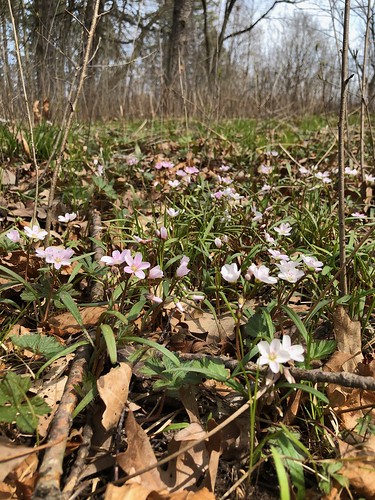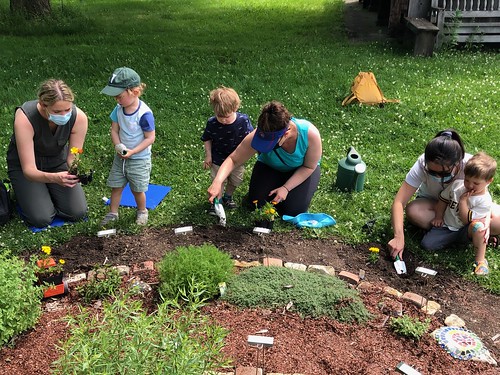
Fee: $20/$16 members for one adult and one child. Additional children are $8 each.
Register: Advanced registration is required; click here to register.
Let’s Make Together! is designed for children aged 3 -5 and their adults. Annalesa Albright brings together her nature, craft, and parenting skills for a series of hands-on, age-appropriate making workshops. In March, art educator and new(ish) mom Katie Hobday takes over. Art-making can be messy, and the group will spend time outdoors whenever possible, so please dress appropriately.
Sessions
January 13: Birdseed Sculptures
Let’s make the birds happy during the winter months with a masterpiece to hang in your yard. We’ll have a variety of bird treats (think oranges, cranberries, popcorn, nuts, and seeds) to create a hanging sculpture. We’ll talk about different birds you might see in your yard and make a logbook to record what you see. Note: Nuts will be used in this workshop.
February 10: A Glass Lantern
Bring some color and light into your winter. Join us in transforming an ordinary jar into a colorful creation using tissue paper, beads— and maybe even some sparkles. We’ll provide an easy, safe, LED candle to light it up.
March 10: Sound Makers & Shakers from Nature
Explore sound by creating simple instruments using natural and found materials. We will experiment with shaking, tipping, and listening as we observe how different materials create different sounds.
April 14: “Signs of Spring” Mark Making and Texture Rubbings
We will look closely at signs of spring and use natural textures to make rubbings and marks on paper. We will explore touch, pattern, and observation through open-ended art making.
May 12: Moving Sculptures
Let’s build simple sculptures designed to move with air, balance, or gentle motion. We will explore how materials shift, sway, and respond as they create sculptures that move in unexpected ways.
About the Educators
Annalesa Albright has been a member of Lynden’s land team for six years. Her passions are gardening, exploring nature, and crafting (knitting, nature crafts, sewing). Using natural materials in her projects is very important to her. She has a formal education in local food systems and has spent years building her knowledge of local flora and fauna. Annalesa has a two-year-old daughter and is always finding ways to incorporate her passions into her parenting. She is eagerly sharing this confluence of interests with the Lynden community in Let’s Make Together!, a new series of workshops for 3-5-year-olds and their adults, and by hosting the monthly Knit @ Lynden group.
Katie Hobday is a graduate of the University of Wisconsin-Milwaukee's Art Education Program and is currently working as a teacher mentor, art teacher in residence, and curriculum designer. She taught middle school art for seven years and has been involved with Lynden’s Innovative Educators Institute since 2015. As an Art Teacher in Residence at the Lynden Sculpture Garden, Katie collaborates with educators and artists to create meaningful learning experiences rooted in art, place, and connection. In her own art practice, she enjoys working with fibers and exploring new mediums. In her free time, Katie loves spending time at the lake with her family and two dogs, Ravioli and Gnocchi.
More programs for the Very Young:
Wednesdays in the Garden
Summer Camps at the Intersection of Art and Nature










